If You’re Over 65, Doctors Say to Avoid These 7 Surprising Foods

A healthy, nutritious diet is one of the key factors for a healthy and vibrant retirement—but you may have to make some changes after 65. “It’s what you do most days that matters,” Amit Shah, MD, assistant professor of internal medicine at the Mayo Clinic in Scottsdale, Arizona, tells AARP. “I always tell people, ‘Go out to eat , have a good time . But the other six days of the week, focus on finding the good [foods ].” Here are 7 foods to be wary of after 65 as they could cause health issues, experts say.
RELATED: One Type of Exercise Can Improve Health After 65.
1
Runny Eggs

Over-easy eggs are delicious but could be dangerous for those after 65 because of the salmonella risk. “Here’s a good rule of thumb for healthy adults — when frying eggs, fry them for at least two to three minutes,” registered dietician Amanda Holtzer tells HuffPost. “When you jiggle the pan, the egg whites should not jiggle, and shouldn’t have any jelly-like whites left. The yolk should either not jiggle at all, or, if you like them runny, they should have a slight jiggle.”
2
Canned Fruit
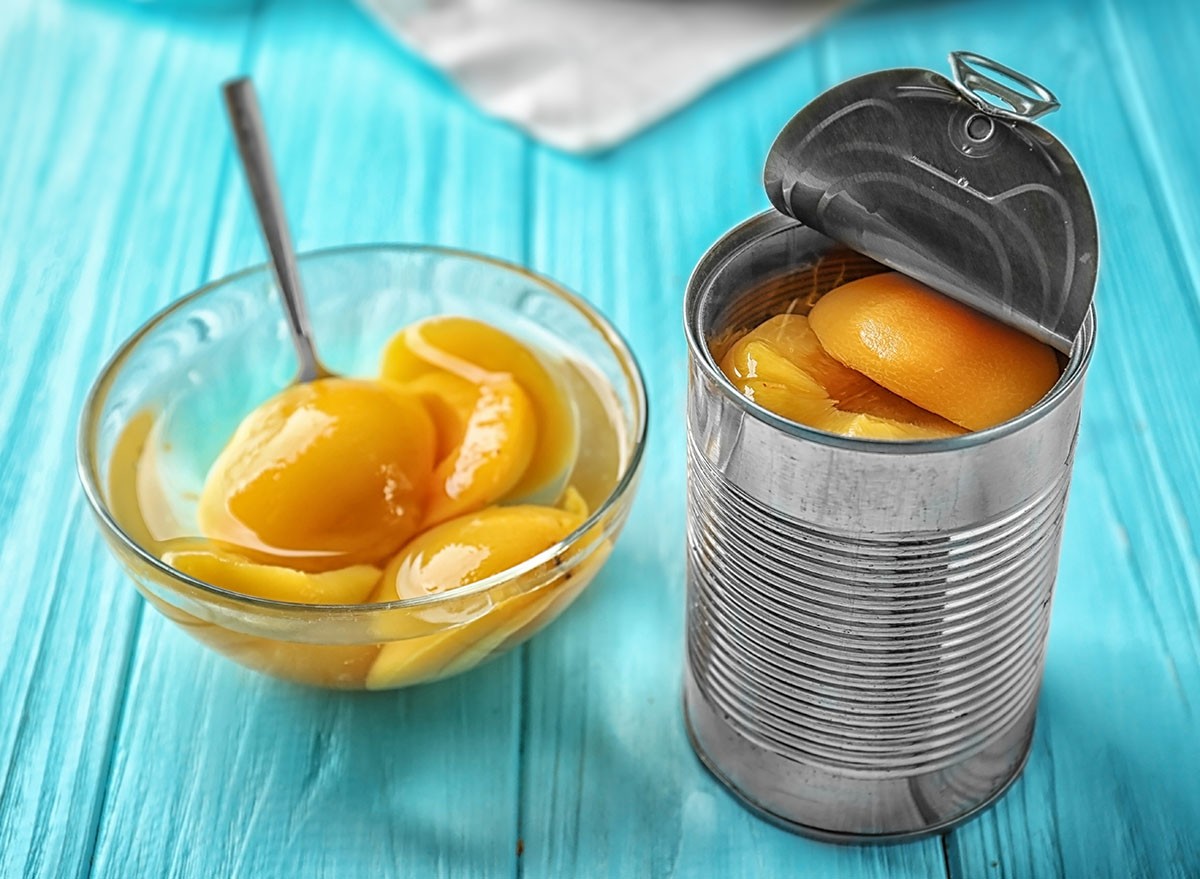
Opt for fresh fruit over canned whenever possible. “You get some of the benefits, but less once it’s been processed and put in a can,” geriatrics physician Colleen Christmas, MD, tells AARP. “The vitamin C level of canned fruits is really, really low. And there’s pretty good evidence that refined sugars promote inflammation in our bodies.”
3
Raw Shellfish
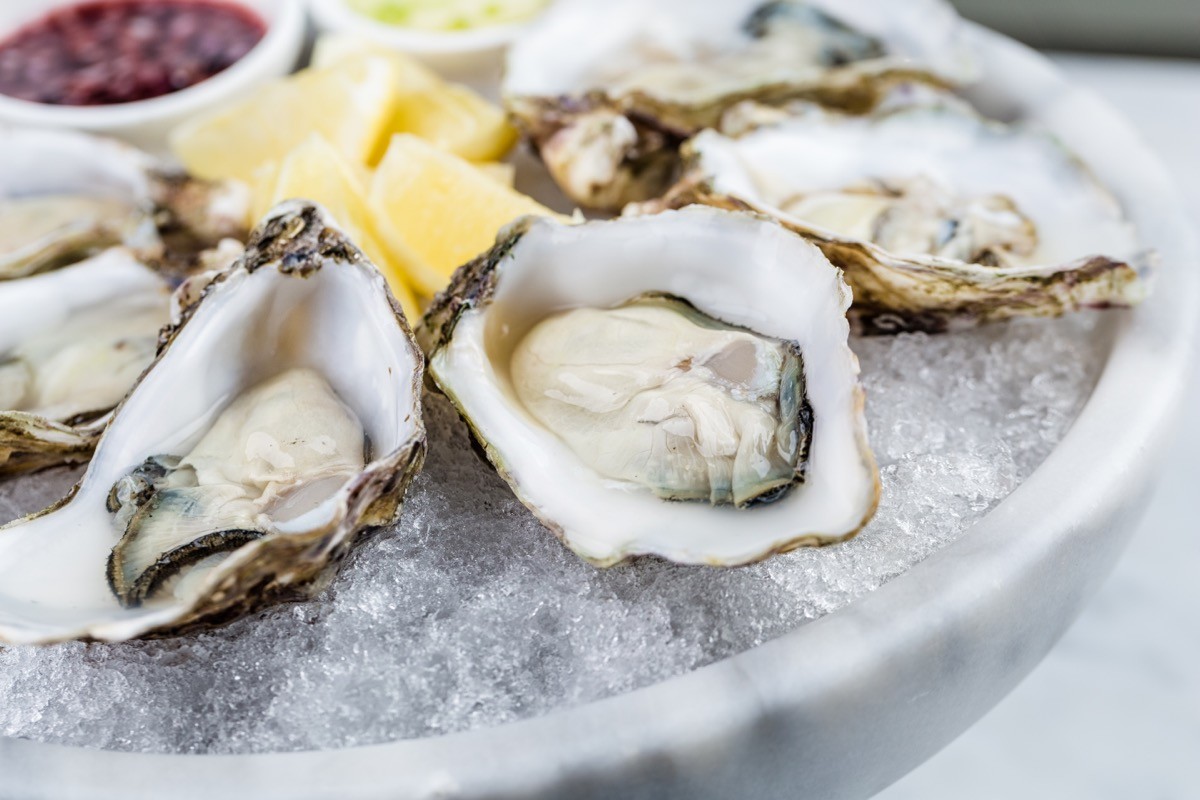
Raw oysters and other shellfish are not worth the risk. “To reduce risks of illness from bacteria in food, persons at risk are advised not to eat raw fish and shellfish, raw or unpasteurized milk or cheese, soft cheeses, raw or lightly cooked egg or egg products, raw meat or poultry, raw sprouts, or unpasteurized fruit or vegetable juices,” says the USDA.
4
Grapefruit Juice
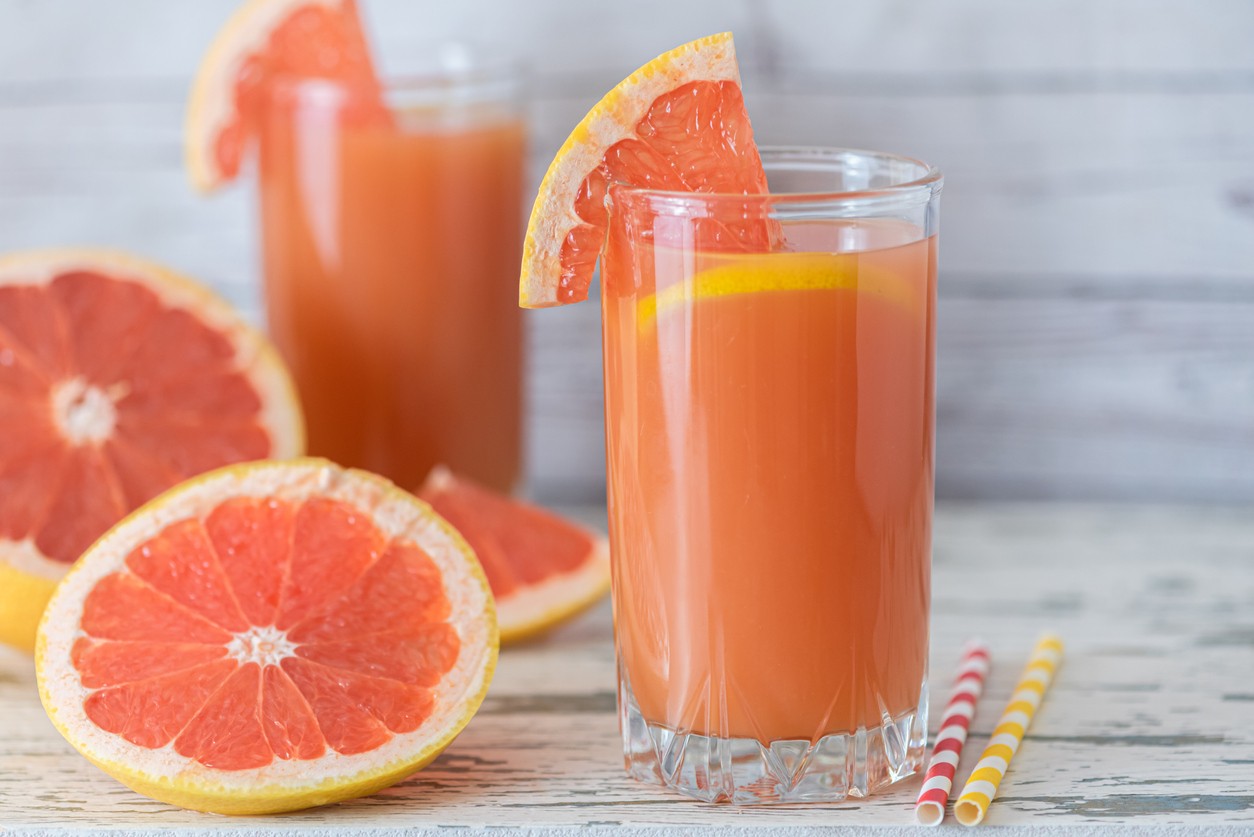
Grapefruit is delicious and nutritious, but the juice can interfere with prescription medications, for example for high cholesterol and depression. “You wouldn’t expect grapefruit to be on a list of foods to avoid after 60,” says the National Council on Aging (NCOA). “But the juice of a grapefruit can interfere with medications taken for insomnia, anxiety, and high blood pressure. Other fruits—and fruit juices like orange juice, cranberry juice, and tomato juice consumed in moderation—are a better bet for older adults.”
RELATED: The Most Fun States If You’re Over 60.
5
Coffee and Tea

The caffeine in coffee and tea can cause issues if you have too much. “Caffeine not only keeps many people from getting a good night’s sleep, it may increase anxiety and make your heart beat more quickly or irregularly,” says Sun Health Communities. “This could be dangerous if you have a heart condition. Aside from coffee, caffeine is also found in many teas, some sodas, chocolate and even some medications, including over-the-counter painkillers.”
6
Canned Soup
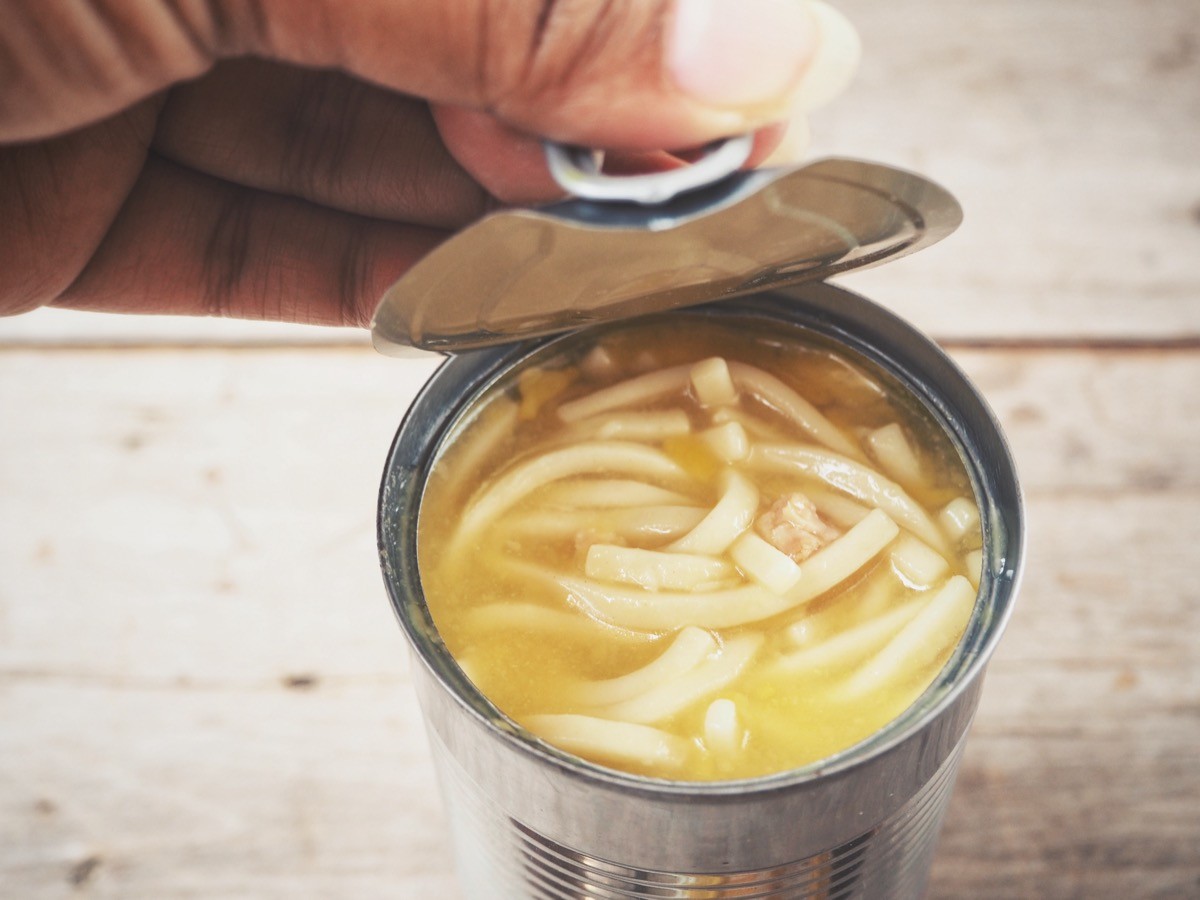
Soup can be an excellent, healthy choice for a meal, but not all soups are created equal. “People love soup, but it has a day-plus of sodium in one cup,” Dr. Shah says. “And sodium is a really important thing to pay attention to if you have congestive heart failure, prior heart attacks or have stiffening of the heart. “
7
Artificial Sweeteners
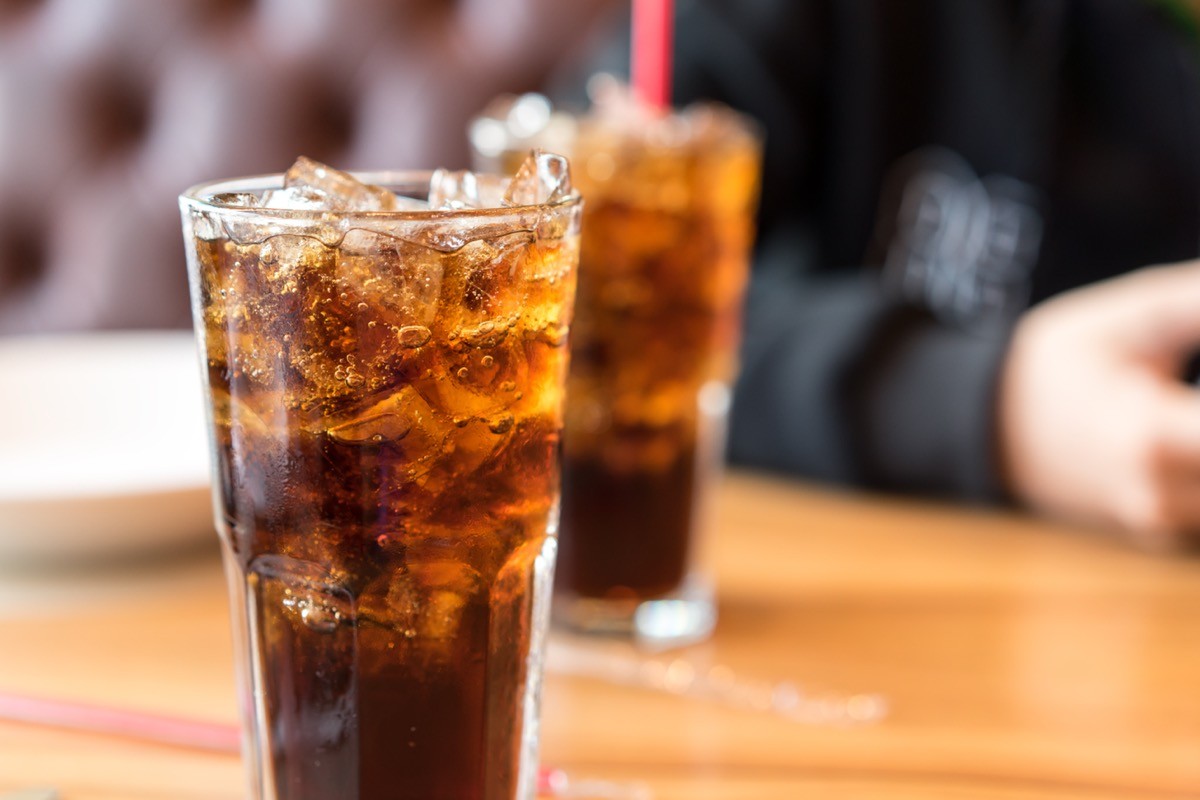
Artificial sweeteners, especially in soda, are linked to serious heart conditions. “Over the last few years, researchers have linked diet soft drinks to everything from obesity to sugar cravings to depression,” according to Bethesda Health. “But a recent study in the Journal of General Internal Medicine suggests that routinely drinking these artificially sweetened soft drinks may do even more serious damage: they could increase your risk of vascular events like a heart attack or stroke.”